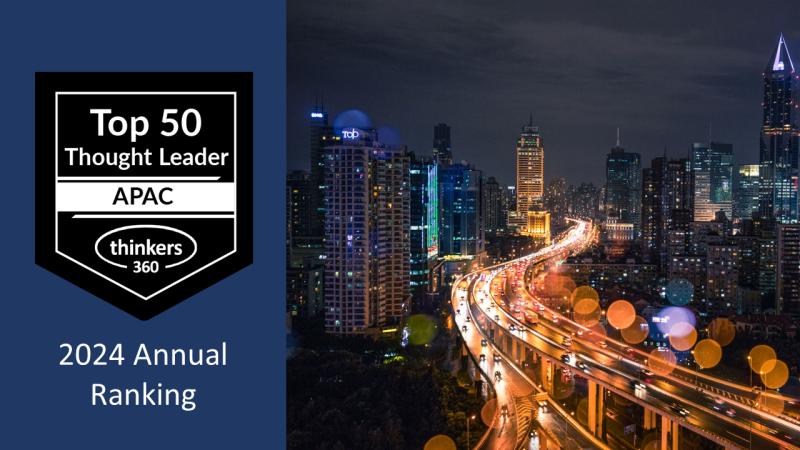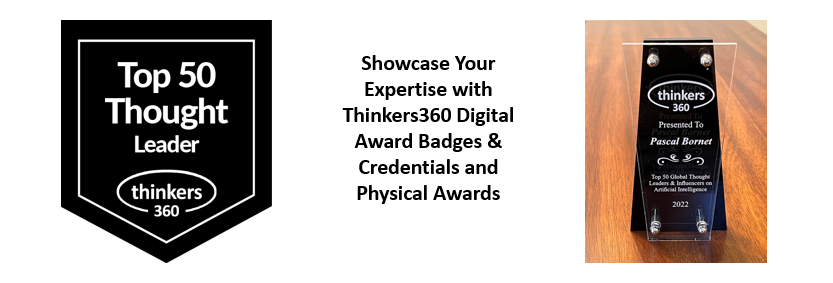Find and work with the World’s Premier B2B Thought Leaders, Advisors, Analysts, Authors, Influencers & Speakers (100M+ followers combined). Join Enterprise Lite to work with all of these analysts and influencers!
Want to be on this list or know others who should be on this live and annual leaderboard? Help us grow the Thinkers360 community by participating and sharing your own content and experience today!
Brands & Companies: Sign up to find and work with advisors, analysts, authors, influencers and speakers in your niche and to amplify your own executives, thought leaders, employee advocates and content among our opt-in community with over 100M followers on social media combined! We specialize in B2B strategic marketing, B2B analyst relations, and B2B thought leadership marketing putting your brand in front of active B2B buyers and influencers worldwide – Explore membership today!
Thought Leaders, Analysts & Influencers: To join the world’s largest opt-in B2B thought leader community and influencer marketplace, participate in our leaderboards, earn digital award badges and credentials, and build, amplify and monetize your personal and corporate brand – Sign-up today!
Readers & Writers: To contribute your own content and to browse amazing content – including articles/blogs, books, interviews, podcasts and videos, from our opt-in B2B thought leader, analyst and influencer community – Join Thinkers360 today!
More than just a list, Thinkers360 live and annual leaderboards are differentiated by our unique patent-pending algorithms that take a holistic measure of thought leadership and authentic influence looking far beyond social media so brands can find exactly the right experts for their niche. Join us today! To find out more about how we calculate the rankings, please visit our article: Understanding the Thinkers360 Leaderboards.
Top 50 B2B Thought Leaders, Analysts & Influencers You Should Work With In 2024 (APAC)
| Thought Leader (Alphabetical) | Thought Leader Profile & Portfolio | Top Ranking Thinkers360 Leaderboards | |
|---|---|---|---|
 |
Dr. Mazlan Abbas FAVORIOT Contact Dr. Mazlan Abbas |
IoT, GovTech, Smart Cities | |
 |
DV Abhang,C.P.M.,CPSM Ram Ratna Group Contact DV Abhang,C.P.M.,CPSM |
Procurement, Supply Chain, Change Management | |
 |
Jane Anderson CSP Jane Anderson Communications Contact Jane Anderson CSP |
Sales, Personal Branding, Social | |
 |
Khairul Anwar DT LEADERSHIP Contact Khairul Anwar |
PropTech, Design Thinking, Open Innovation | |
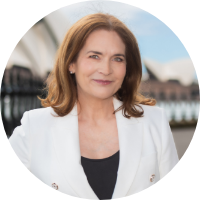 |
Dr Stacey Ashley Stacey Ashley Contact Dr Stacey Ashley |
Change Management, Coaching, Management | |
 |
Arthur Carmazzi Directive Communication International (Asia) PTE LTD Contact Arthur Carmazzi |
Culture, Mental Health, Change Management | |
 |
Ashley Galina Dudarenok ChoZan Contact Ashley Galina Dudarenok |
Marketing, Digital Disruption, Business Strategy | |
 |
Apoorv Durga, Ph.D. Real Story Group Contact Apoorv Durga, Ph.D. |
Marketing, Customer Experience, Digital Transformation | |
 |
Chenthil Eswaran Aspire Systems (India) Pvt. Ltd Contact Chenthil Eswaran |
PropTech, ERP, CRM | |
 |
Sally Foley-Lewis Sally Foley-Lewis Contact Sally Foley-Lewis |
Coaching, Management, Leadership | |
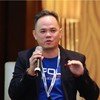 |
Alvin Foo Chain Valley Capital Contact Alvin Foo |
||
 |
Samiran Ghosh unblox Solutions Contact Samiran Ghosh |
Cryptocurrency, Blockchain, FinTech | |
 |
Gokul Alex KPMG India Contact Gokul Alex |
Open Innovation, Blockchain, Quantum Computing | |
 |
Luke Jamieson www.LukeJamieson.live Contact Luke Jamieson |
Design, SportsTech, Future of Work | |
 |
Mayur Joshi Riskpro Management Consulting Private Limited Contact Mayur Joshi |
Risk Management, Careers, EdTech | |
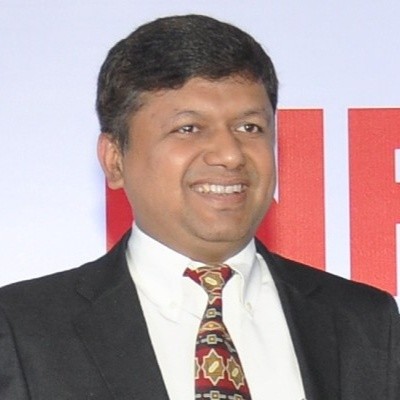 |
Ratan Jyoti Ujjivan Small Finance Bank Contact Ratan Jyoti |
Privacy, Blockchain, Cybersecurity | |
 |
Keith Keller Global Social Media Coaching Contact Keith Keller |
Social, Marketing | |
 |
Harjeet Khanduja Reliance Jio Contact Harjeet Khanduja |
HR, 5G, Leadership | |
 |
Aditya Khullar Adani Digital Labs Contact Aditya Khullar |
Privacy, Risk Management, DevOps | |
 |
Kashyap Kompella RPA2AI Research Contact Kashyap Kompella |
RPA, AI, Cloud | |
 |
Prof. Marek Kowalkiewicz QUT (Queensland University of Technology) Contact Prof. Marek Kowalkiewicz |
Generative AI, AI, Creativity | |
 |
Dr Ram Kumar G, PhD Volvo Group Contact Dr Ram Kumar G, PhD |
Risk Management, Cybersecurity, Privacy | |
 |
Avdhesh Kumbhar Global Business Hub Contact Avdhesh Kumbhar |
Startups, Public Relations, Sales | |
 |
Anndy Lian Mongolian Productivity Organization Contact Anndy Lian |
Blockchain, Digital Disruption, Business Strategy | |
 |
Adv (Dr.) Prashant Mali [MSc, LLB, LLM, Ph.D.] Cyber Law Consulting (Advocates & Attorneys) Contact Adv (Dr.) Prashant Mali [MSc, LLB, LLM, Ph.D.] |
Legal & IP, Privacy, Creativity | |
 |
Navin Manaswi WoWExp Contact Navin Manaswi |
AR/VR, Startups, Retail | |
 |
Siobhán (Shiv-awn) McHale Dulux Group Contact Siobhán (Shiv-awn) McHale |
HR, Future of Work, Culture | |
 |
Pradeepta Mishra Data Safeguard Inc Contact Pradeepta Mishra |
Predictive Analytics, Analytics, AI | |
 |
Prof M Nazri Muhd MyFinB Group| Centre for AI Innovation (CE.A.I) Contact Prof M Nazri Muhd |
AI, Digital Transformation, Predictive Analytics | |
 |
Vidusha Nathavitharana Luminary Learning Solutions Private Limited Contact Vidusha Nathavitharana |
Management, Health & Wellness, COVID19 | |
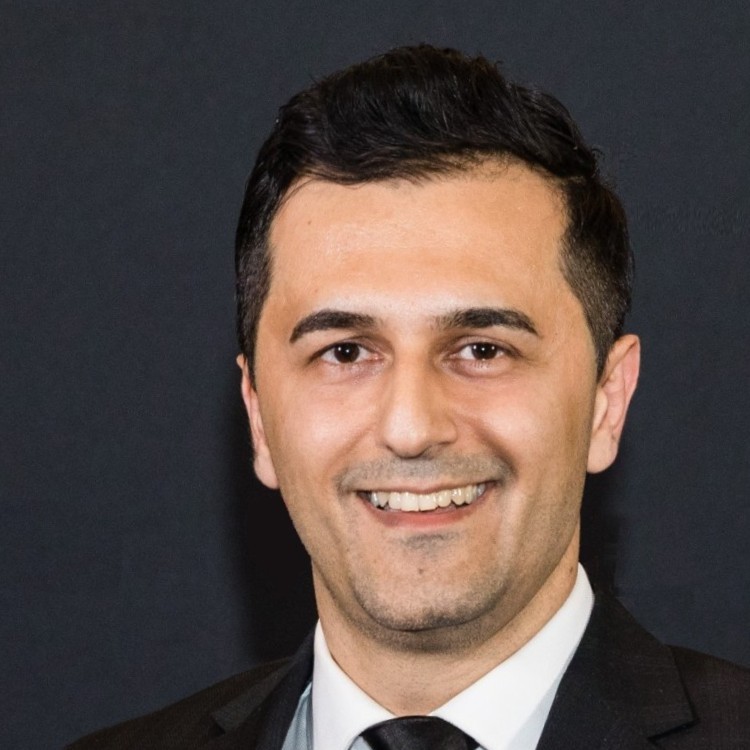 |
Steve Nouri AI4Diversity Contact Steve Nouri |
NFT, Generative AI, RPA | |
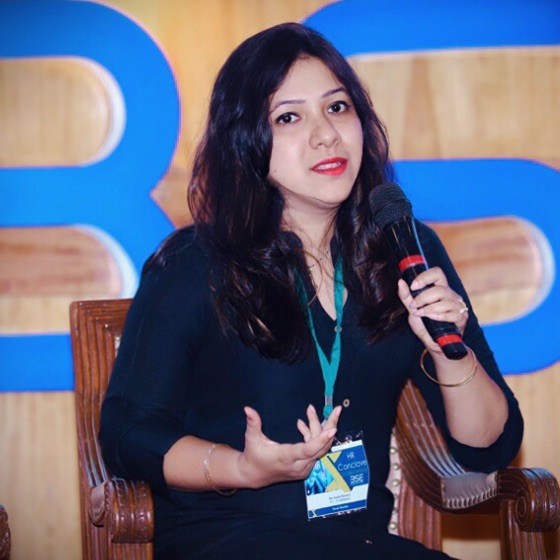 |
Arpita (Mukherjee) Pamnani Axis Bank |
||
 |
Sameer Paradkar Eviden (An AtoS Business) Contact Sameer Paradkar |
Data Center, Design Thinking, Open Innovation | |
 |
Kalilur Rahman Contact Kalilur Rahman |
Agile, Big Data, Analytics | |
 |
Professor M.S. Rao, Ph.D. MSR Leadership Consultants India Contact Professor M.S. Rao, Ph.D. |
Leadership, Business Strategy, HR | |
 |
Amenallah Reghimi RegASK™ Contact Amenallah Reghimi |
FinTech, Procurement, AI | |
 |
Dr Mark van Rijmenam The Digital Speaker Contact Dr Mark van Rijmenam |
NFT, Metaverse, Blockchain | |
 |
Marie-Claire Ross Trustologie Contact Marie-Claire Ross |
IT Leadership, Health & Safety, Management | |
 |
Prof.(Dr.) Sanjay Rout Innovation Solution Lab Contact Prof.(Dr.) Sanjay Rout |
Open Innovation, Mergers & Acquisitions, GovTech | |
 |
Rahul Sasi CloudSEK Contact Rahul Sasi |
Risk Management, Cybersecurity, Big Data | |
 |
Praveen Singh CyberPWN Technologies Contact Praveen Singh |
National Security, Privacy, Cybersecurity | |
 |
Roger Smith Care MIT Contact Roger Smith |
Security, Cybersecurity, Risk Management | |
 |
Aarron Spinley SPINLEY.CO Contact Aarron Spinley |
Customer Experience, Lean Startup, Marketing | |
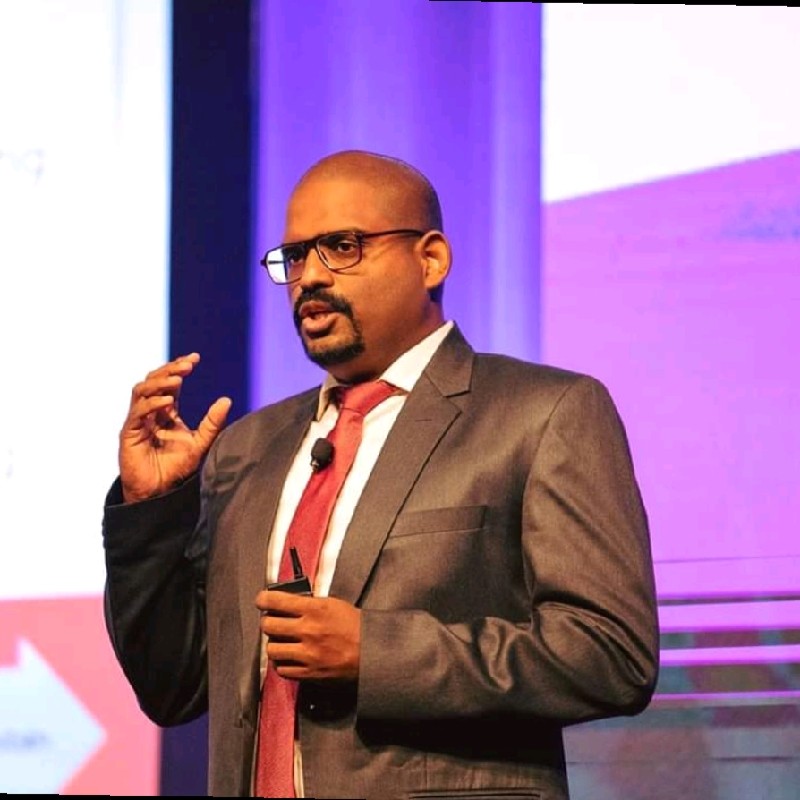 |
Robin Tommy Tata Consultancy Services Contact Robin Tommy |
AR/VR, Sustainability, EdTech | |
 |
Steve Tunstall Contact Steve Tunstall |
||
 |
Richard Turrin Contact Richard Turrin |
FinTech, Blockchain, Innovation | |
 |
Dr. Sunil Kumar Vuppala Ericsson Contact Dr. Sunil Kumar Vuppala |
Emerging Technology, IoT, AI | |
 |
Friska Wirya Fresh by Friska Contact Friska Wirya |
Change Management, Personal Branding, Careers | |
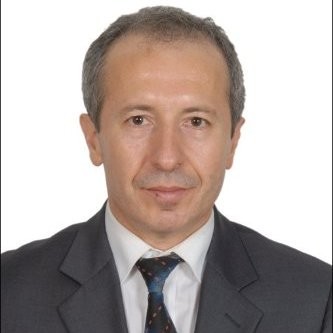 |
Dr. Mehmet Yildiz Digitalmehmet Contact Dr. Mehmet Yildiz |
Mental Health, Design Thinking, Health & Safety | |
 |
EUR ING. Ts. Sukor Zainal CEng FIMarEST CMarEng EFTECH ENERGY SOLUTIONS Contact EUR ING. Ts. Sukor Zainal CEng FIMarEST CMarEng |
Data Center, Project Management, Entrepreneurship |
Our listing includes members of Thinkers360 and who have curated and shared their thought leadership content from around the web – including articles, blogs, books, keynotes, media interviews, panels, podcasts, social media, speaking events, videos, webinars and whitepapers – via our platform to build their Thinkers360 profile, portfolio and media kit.
Our differentiation from the various influencer leaderboards on social media, is that we take a holistic view of thought leaders and experts, beyond their social media activity, and look across all the hats they may wear – such as academic, analyst, author, consultant, entrepreneur, influencer and speaker – and all the types of thought leadership content they produce.*
To see the full list (including industry-leading in-depth profiles, portfolios and media kits) or to participate in any of our leaderboards (by sharing your own thought leadership content), SIGN-UP for Thinkers360 today!
We focus on cutting edge business, technology and sustainability topics including 5G, Agile, AI, Analytics, AR/VR, Autonomous Vehicles, Big Data, Blockchain, Business Continuity, Business Strategy, Careers, Change Management, Climate Change, Cloud, Coaching, COVID-19, Creativity, CRM, Corporate Social Responsibility, Cryptocurrency, Culture, Customer Experience, Customer Loyalty, Cybersecurity, Data Center, Design, Design Thinking, DevOps, Digital Disruption, Digital Transformation, Digital Twins, Diversity & Inclusion, Ecosystems, EdTech, Education, Emerging Technology, Entrepreneurship, ERP, Finance, FinTech, Generative AI, GovTech, Health & Safety, Health & Wellness, Healthcare, HealthTech, HR, Innovation, InsurTech, International Relations, IoT, IT Leadership, IT Operations, IT Strategy, Leadership, Lean Startup, Legal & IP, Management, Manufacturing, Marketing, Mental Health, Mergers & Acquisitions, Metaverse, Mobility, National Security, NFT, Open Innovation, Open Source, Payroll, Personal Branding, Predictive Analytics, Privacy, Procurement, Product Management, Project Management, PropTech, Public Relations, Quantum Computing, Recruiting, Renewable Energy, Retail, Risk Management, RPA, Sales, Security, Smart Cities, Social, SportsTech, Startups, Supply Chain, Sustainability and Telecom.
Frequently Asked Questions
What specific criteria were used to select the top 50 thought leaders and influencers?
The Thinkers360 thought leadership leaderboards are by participation and everyone is invited to join by signing up at Thinkers360.com. There is no difference in how we calculate the rankings between free and paid members.
The Thinkers360 leaderboards are based on member’s personally authored content and experience curated from around the web and added to their Thinkers360 profile, portfolio, and media kit.
Unlike social media leaderboards which can be gamed via the purchase of fake followers, spamming of hashtags, and sharing of third-party content, the Thinkers360 leaderboards are based on member’s real content and accomplishments. Something that’s a true measure of expertise and hard to fake.
For more information, please see our article “Understanding the Thinkers360 Leaderboards”.
How can I get on the Thinkers360 list in the future?
Simply Sign Up for Thinkers360 and start building your profile, portfolio, and media kit. You can add personally authored content, awards and recognition and tag each content item with up to 3 relevant keywords that count towards the leaderboards.
How can I recommend others who should be on the list?
Know others who should be on our leaderboards? Help us grow the Thinkers360 community by inviting them to participate by sharing their own content today! We amplify your content for free!
What are some other resources available to learn more?
Thinkers360 is an opt-in network of the world’s foremost B2B thought leaders — including academics, advisors, analysts, authors, consultants, executives, influencers, and speakers — with over 100M followers on social media combined.
To access resources from our members, simply Sign Up for Thinkers360 and visit our Content menu. There you can filter by any topic of interest from over 90 cutting-edge business, technology, and sustainability topics. You can also filter content by over 70 content types such as articles, blogs, books, keynotes, media interviews, panels, podcasts, social media, speaking events, videos, webinars, whitepapers, as well as awards, certifications, and many other professional positions, credentials, and achievements.
You can also view each thought leader’s content by going to their profile on Thinkers360, scrolling down to the “Publication” section, and then expanding to see all their content, awards, and recognition. This includes direct links to their content published around the web such as articles, blogs, books, podcasts and speaking.
To work with any of these thought leaders simply join any of our enterprise plans.
###
Join us on Thinkers360 — Connecting Global Brands with the World’s Foremost Thought Leaders, Analysts and Influencers for Game-Changing Results!
Thinkers360 is the world’s first, largest and premier B2B thought leader and influencer marketplace — including academics, advisors, analysts, authors, consultants, executives, influencers and speakers — with over 100M followers on social media combined. We are differentiated by our unique patent-pending algorithms that measure thought leadership and authentic influence looking far beyond social media alone.
Brands & Companies: Sign up to find and work with advisors, analysts, authors, influencers and speakers in your niche and to amplify your own executives, thought leaders, employee advocates and content among our opt-in community with over 100M followers on social media combined! We specialize in B2B strategic marketing, B2B analyst relations, and B2B thought leadership marketing putting your brand in front of active B2B buyers and influencers worldwide – Explore membership today!
Thought Leaders, Analysts & Influencers: To join the world’s largest opt-in B2B thought leader community and influencer marketplace, participate in our leaderboards, earn digital award badges and credentials, and build, amplify and monetize your personal and corporate brand – Sign-up today !
Readers & Writers: To contribute your own content and to browse amazing content – including articles/blogs, books, interviews, podcasts and videos, from our opt-in B2B thought leader, analyst and influencer community – Join Thinkers360 today!
Want to find and work with advisors, analysts, authors, consultants, influencers and speakers (including access to our unique thought leader profiles and portfolios, in-depth reports and analytics, warm personal introductions, and our zero-transaction fee speaker bureau)?
Contact us to discuss any of your project needs at info@thinkers360.com
For advertising and sponsorship opportunities, please contact info@thinkers360.com.
Our Methodology
* The Thinkers360 patent-pending algorithm helps to produce leaderboards that look across all thought leader roles and across the quantity and quality of their thought leadership content. It provides a valuable measure of thought leadership content, encourages genuine content creation, incorporates social media influence as one of the measures, and encourages richer profiles and portfolios through gamification.
Of course, no measurement system related to influence or thought leadership is perfect, but the thought leadership scoring system within Thinkers360 is a highly-differentiated approach to help you identify authentic thought leaders – looking far beyond social media – serving as the tip of the spear for your strategic marketing, thought leadership marketing, PR & corporate communications, and analyst and influencer relations objectives.


Anndy Lian is an early blockchain adopter and experienced serial entrepreneur who is known for his work in the government sector. He is a best selling book author- “NFT: From Zero to Hero” and “Blockchain Revolution 2030”.
Currently, he is appointed as the Chief Digital Advisor at Mongolia Productivity Organization, championing national digitization. Prior to his current appointments, he was the Chairman of BigONE Exchange, a global top 30 ranked crypto spot exchange and was also the Advisory Board Member for Hyundai DAC, the blockchain arm of South Korea’s largest car manufacturer Hyundai Motor Group. Lian played a pivotal role as the Blockchain Advisor for Asian Productivity Organisation (APO), an intergovernmental organization committed to improving productivity in the Asia-Pacific region.
An avid supporter of incubating start-ups, Anndy has also been a private investor for the past eight years. With a growth investment mindset, Anndy strategically demonstrates this in the companies he chooses to be involved with. He believes that what he is doing through blockchain technology currently will revolutionise and redefine traditional businesses. He also believes that the blockchain industry has to be “redecentralised”.
